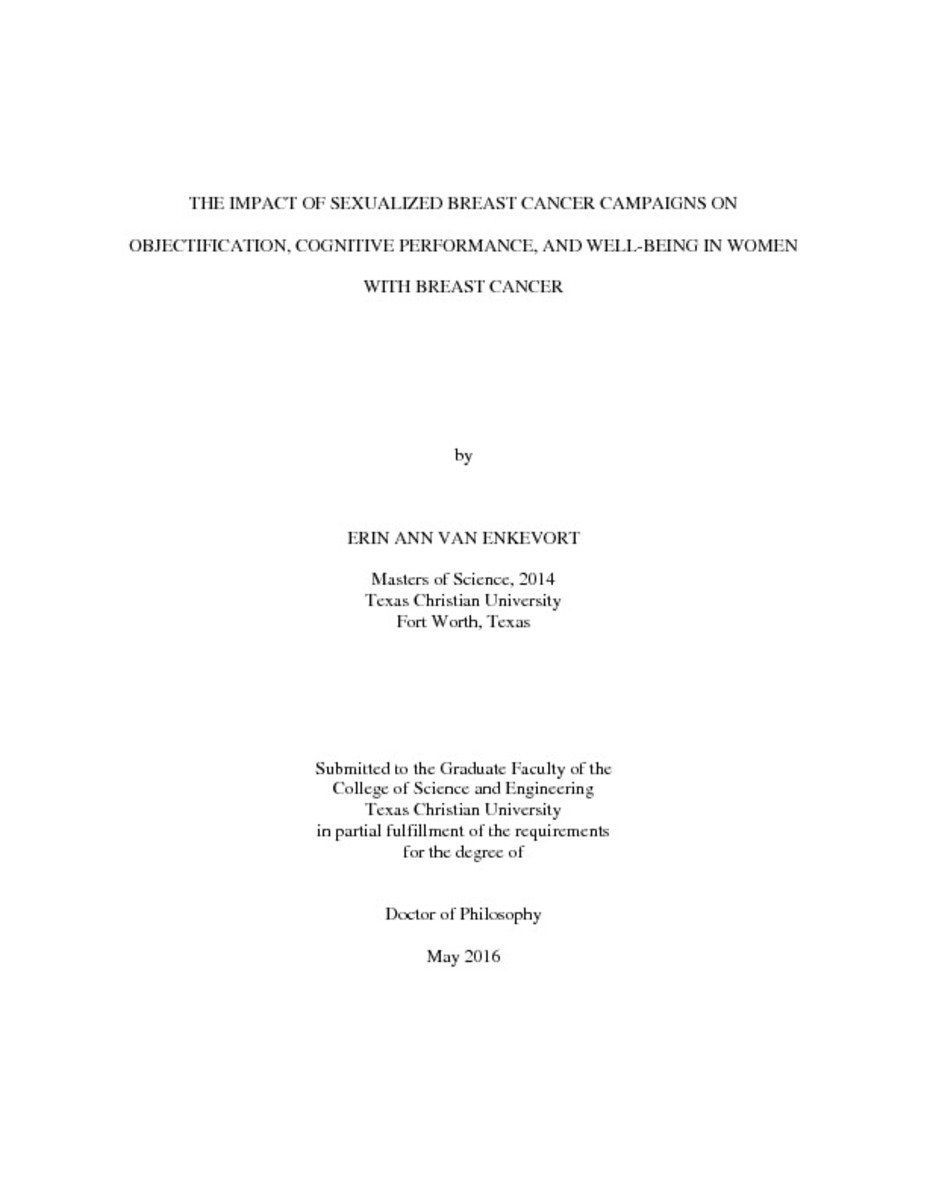The impact of sexualized breast cancer campaigns on objectification, cognitive performance, and well-being in women with breast cancerShow full item record
| Title | The impact of sexualized breast cancer campaigns on objectification, cognitive performance, and well-being in women with breast cancer |
|---|---|
| Author | Van Enkevort, Erin Ann |
| Date | 2016 |
| Genre | Dissertation |
| Degree | Doctor of Philosophy |
| Abstract | Breast cancer survivors often experience cognitive impairments and lower quality of life as a result of their treatment. The current research used an objectification theory perspective to examine whether increased body focus leads to poorer cognitive functioning and lower well-being in women with breast cancer. In three studies, women were exposed to either a sexualized breast cancer slogan (e.g., ?I Love Boobies?) or neutral slogans (e.g., ?Think Pink? vs. no slogan) in order to manipulate feelings of objectification. Participants were then asked to complete measures of objectification (Studies 1-3), cognitive tasks (e.g., executive functioning, verbal fluency, memory; Study 2), and assessments of well-being (e.g., mood, satisfaction with life; Study 3). Results indicated that breast cancer survivors, who were exposed to sexualized breast cancer campaigns, reported increased body focus (i.e., objectification; Studies 1 3) compared to both neutral conditions. Further, in comparison to neutral campaigns, sexualized campaigns led to lower cognitive functioning (Study 2) and diminished well-being (Study 3) in women with breast cancer. Study 3s findings, however, were found after controlling for womens appearance anxiety. Taken together, these results suggest that sexualized breast cancer campaigns have the potential to undermine breast cancer survivors emotional, psychological, and cognitive health. |
| Link | https://repository.tcu.edu/handle/116099117/10953 |
| Department | Psychology |
| Advisor | Cox, Cathy R. |
Files in this item
This item appears in the following Collection(s)
- Doctoral Dissertations [1526]
© TCU Library 2015 | Contact Special Collections |
HTML Sitemap



